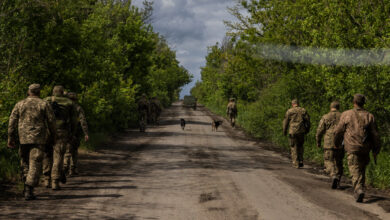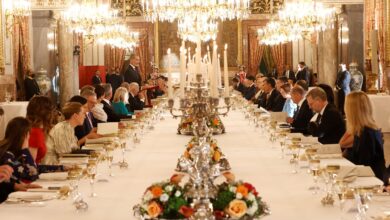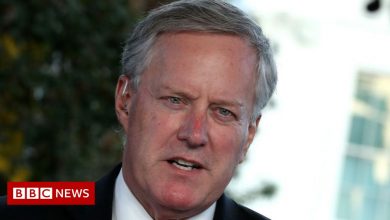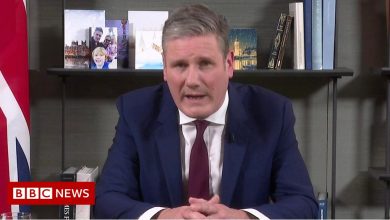Lebanon fears dangerous new phase of fighting
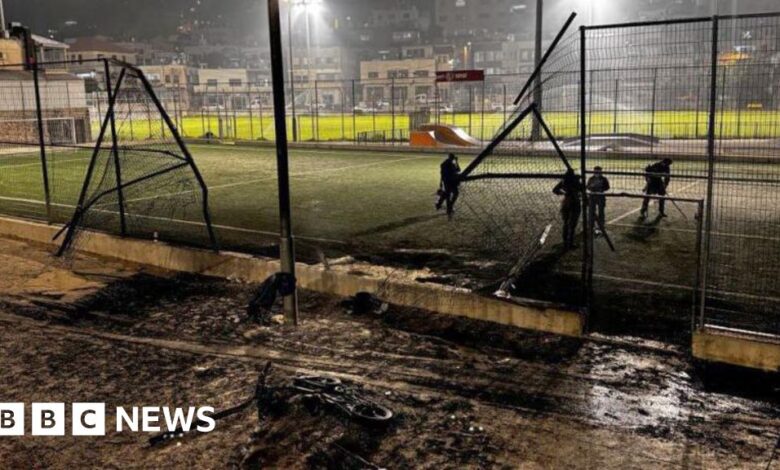
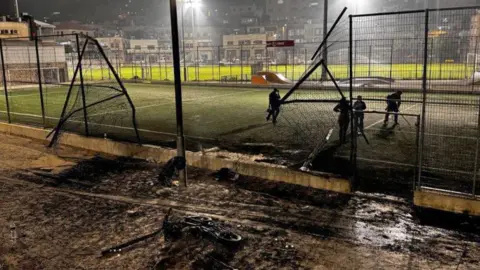 beautiful pictures
beautiful picturesSince October, near-daily cross-border attacks between Israel and Hezbollah, Lebanon’s powerful Iran-backed militia and political movement, have killed hundreds of people and forced tens of thousands on both sides to flee their homes, raising fears that the relatively contained violence could escalate into a full-blown conflict.
Yet amid the attacks and counterattacks, there have been signs that they are trying to avoid a major confrontation. But miscalculation is always a risk, and Saturday’s attack on the Druze town of Majdal Shams, in the Israeli-occupied Golan Heights, could be just that.
Israel has accused Hezbollah of carrying out an attack on a football stadium that killed at least 12 people, including children, in the deadliest attack in the current fighting, and has promised to respond.
“Israel will not ignore this murderous attack,” Israeli Prime Minister Benjamin Netanyahu said, according to a statement released by his office. “Hezbollah will pay a heavy price that it has not paid so far.”
Hezbollah denied being behind the attack.
However, before the scale of the attack became clear, the group said it had targeted the Hermon Brigade with an Iranian-made Falaq missile, one of several carried out that day. The base, on the slopes of Mount Hermon, is about 3km (two miles) from where the explosion occurred, raising the possibility that the missile missed its target.
Daniel Hagari, an Israeli military spokesman, said intelligence indicated the attack was carried out by Hezbollah in Lebanon, describing the group’s denial as “a lie”.
US Secretary of State Antony Blinken also said “every indication” was that the missile was fired by Hezbollah and that the US supported “Israel’s right to protect its citizens from terrorist attacks”.
Lebanon is therefore awaiting a possible major reaction from Israel.
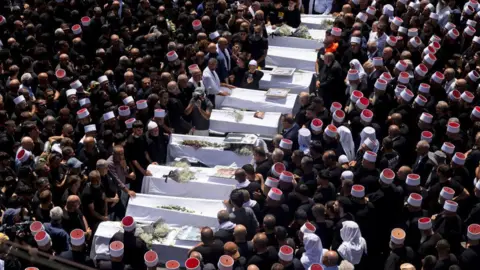 beautiful pictures
beautiful picturesHezbollah’s attacks began on October 8, a day after a deadly Hamas attack on Israel, with the group saying it supported Palestinians in Gaza. So far, more than 450 people have been reported killed in Lebanon, including about 350 Hezbollah fighters and at least 100 civilians. In Israel, 23 civilians and at least 17 soldiers have been killed.
In Lebanon, most of Israel’s attacks have targeted the south, where villages have been destroyed and abandoned, and the eastern Bekaa Valley, two areas where Hezbollah operates. An Israeli campaign targeting areas that have so far been spared, including parts of the capital Beirut, could usher in a dangerous and unpredictable phase in their war.
Considered a far more formidable foe than Hamas, Hezbollah has been preparing for another major conflict with Israel since their last conflict in 2006, which resulted in heavy casualties on both sides. The group has an estimated 150,000 rockets and missiles, according to Western estimates, which could overwhelm Israel’s sophisticated air defense systems. The arsenal also includes precision-guided missiles capable of striking deep into Israeli territory.
Israeli authorities have repeatedly described the group’s attacks as unacceptable and are under increasing pressure to act to allow displaced residents to return to northern communities. Military officials say the Israel Defense Forces (IDF), which is still conducting major operations against Hamas in Gaza, is ready to launch an offensive against Hezbollah, although details of what that might involve remain unclear.
Hassan Nasrallah, Hezbollah’s longtime leader, has repeatedly said that the group does not want a full-scale war with Israel, but that it is ready for one. Last month, he said the group had deployed only a small portion of its weapons and warned Israel that any war would be fought “without constraints or rules.” A major campaign against the group could draw in other Iranian-backed militias in the region, which are part of what Tehran calls the “Axis of Resistance.”
Any war would be devastating for both countries, but especially for Lebanon, which has been in a state of constant crisis for more than half a decade. The economy has collapsed, with an estimated 80 percent of the population living in poverty, and political disputes have prevented presidential elections for nearly two years. The government has limited, if any, influence over Hezbollah, which, like Hamas, is considered a terrorist organization by Britain, the United States and others.
But all-out war is not inevitable. Diplomats are trying to prevent a major escalation in the fighting, with Lebanon’s Foreign Minister Abdallah Bou Habib telling the BBC that the government is “asking Hezbollah not to retaliate”.
Israeli Foreign Ministry spokesman Oren Marmorstein said the “only way” to prevent conflict was to implement UN Resolution 1701, which was adopted to end the war in 2006. The document included the withdrawal of armed groups from southern Lebanon, between the Litani River and the Green Line, the unofficial border with Israel, but was never fully implemented.
Now is the “last minute” to prevent war by diplomatic means, Mr. Marmorstein said.

